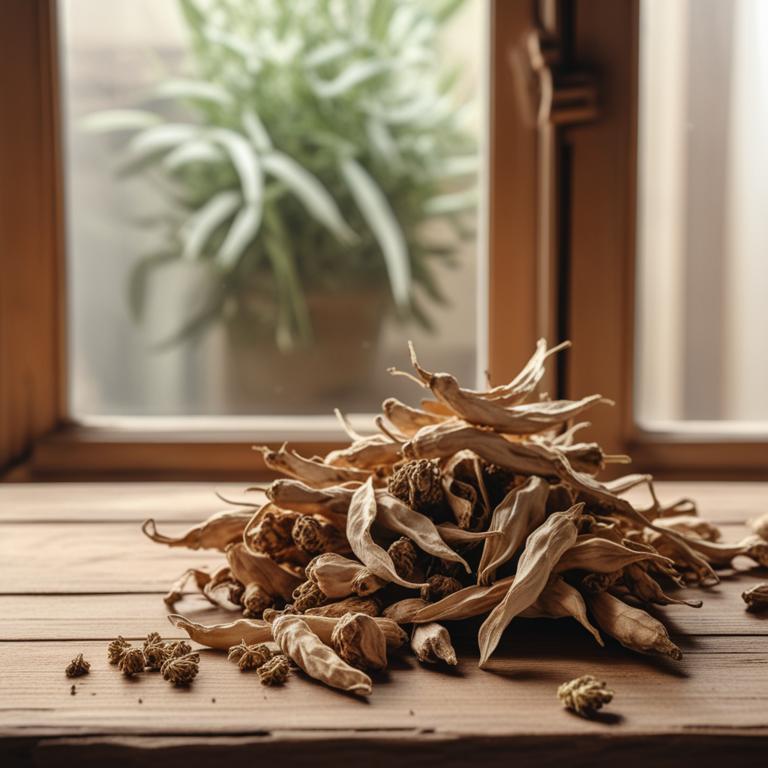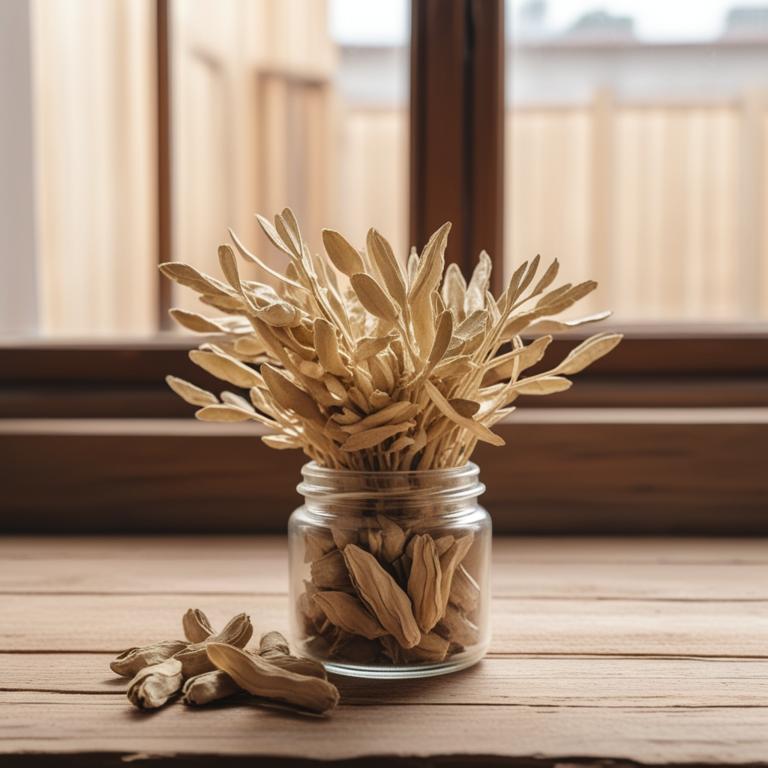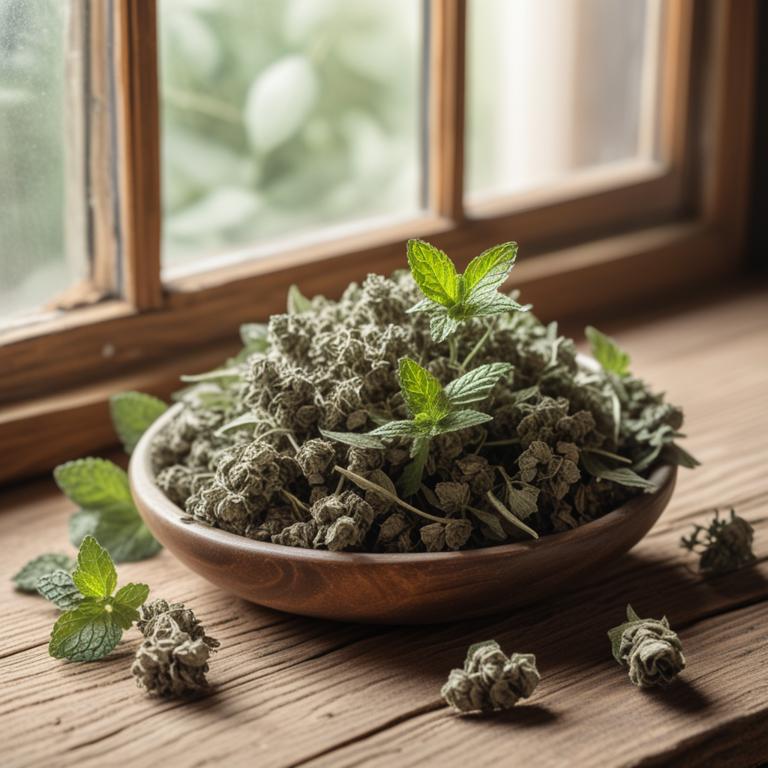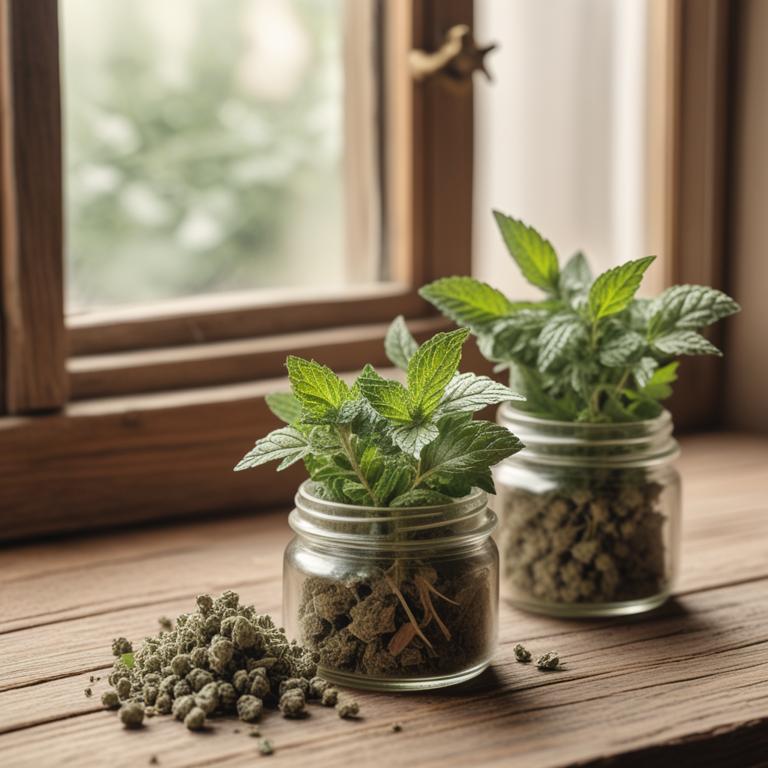Updated: Dec 1, 2024
Burping Causes and Herbal Preparations for Relief
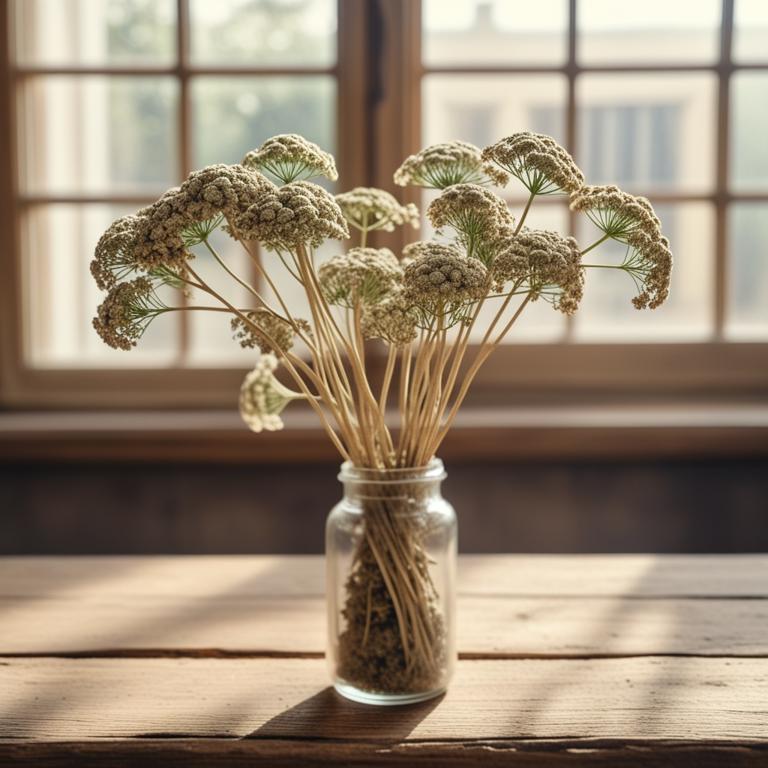
Burping, or belching, is a natural process where gas builds up in the stomach and is released through the mouth.
However, excessive burping can be uncomfortable and affect daily life, especially in social situations. It can also be a sign of underlying issues, such as eating too quickly, swallowing air, or having digestive problems like acid reflux or irritable bowel syndrome. The causes of burping can vary from person to person, but common culprits include carbonated drinks, spicy foods, and certain medications. Some people may experience burping due to a food intolerance or sensitivity, while others may have a more serious condition like gastroparesis.
For those looking for natural relief, several herbal remedies can help alleviate burping. Herbs like ginger, fennel, and peppermint have anti-inflammatory properties and can help soothe the digestive system. These herbs can be consumed as teas, which can be made by steeping fresh or dried leaves in hot water. You can also find ginger and fennel in capsule or oil form, which can be taken orally.
Additionally, some herbal teas, like chamomile and licorice root, can help calm the stomach and reduce burping.
Table of Contents
What triggers the occurrence of burping?
The main causes of burping are swallowing air, drinking carbonated beverages, and consuming certain types of drinks like soda and beer.
Swallowing air is a common cause of burping because when we eat or drink, air can enter our stomach through our mouth or nose. This air gets trapped in the stomach and is released as a burp. Drinking carbonated drinks like soda and beer is another major cause of burping. These drinks contain carbon dioxide gas, which forms bubbles in the stomach when we swallow them.
As the bubbles form and rise, they get released as a burp. The more carbonated the drink, the more likely we are to burp. Soda, in particular, is a leading cause of burping because it contains a high amount of carbon dioxide. When we drink soda, the carbon dioxide forms bubbles in the stomach, which then get released as a burp. Beer is also a culprit, as the yeast in the fermentation process produces carbon dioxide, leading to burps.
It's worth noting that certain foods and eating habits can also contribute to burping, but these are the main causes related to the given examples.
What benefits can be achieved by using herbs to prevent burping?
Using herbs to help with burping can be really helpful.
One of the main benefits is that they can ease digestion and reduce discomfort after eating. These herbs can calm down the muscles in your stomach and help move food through your digestive system more smoothly.
This can lead to less burping and discomfort, and even reduce symptoms like bloating and gas. Some people also find that using these herbs helps them feel more relaxed and focused, which can be a nice bonus. Additionally, many of these herbs have been used for years in traditional medicine, so they're not just a fad - they're tried and true remedies that have been helping people for a long time.
They're also often easy to incorporate into your daily routine, whether you're taking them as tea, adding them to food, or using them in a supplement.
What medicinal herbs are commonly used for treating burping?

Herbs can help with burping due to their natural properties that aid digestion and relieve gas.
Zingiber officinale, also known as ginger, is great for burping because it helps to move food through the digestive system, reducing the amount of gas and acid that can lead to burping. Its active compound, gingerol, has anti-inflammatory properties that can also soothe the stomach lining and ease digestive discomfort. Foeniculum vulgare, or fennel, is another herb that's beneficial for burping. Its seeds contain a compound called anethole, which helps to relax the muscles in the digestive tract and reduce gas. This makes fennel seeds a popular remedy for bloating and indigestion. When you burp after eating fennel, it's because the herb is helping to release trapped gas and air from your digestive system. Piper nigrum, or black pepper, contains a compound called piperine, which can help to stimulate digestion and reduce inflammation in the stomach.
When you eat black pepper, it can help to break down food more efficiently and reduce the amount of gas that's produced. As a result, you may experience less burping after eating foods that normally cause you discomfort. Coriandrum sativum, or coriander, has anti-inflammatory properties that can help to soothe the stomach lining and reduce digestive discomfort. Its active compounds, linalool and geraniol, can also help to relax the muscles in the digestive tract and reduce gas. When you eat coriander, it can help to ease bloating and indigestion, making it a popular remedy for digestive issues. Cinnamomum verum, or cinnamon, has a compound called cinnamaldehyde that can help to stimulate digestion and reduce inflammation in the stomach. When you eat cinnamon, it can help to break down food more efficiently and reduce the amount of gas that's produced.
As a result, you may experience less burping after eating foods that normally cause you discomfort.
What are the common herbal treatments for burping?
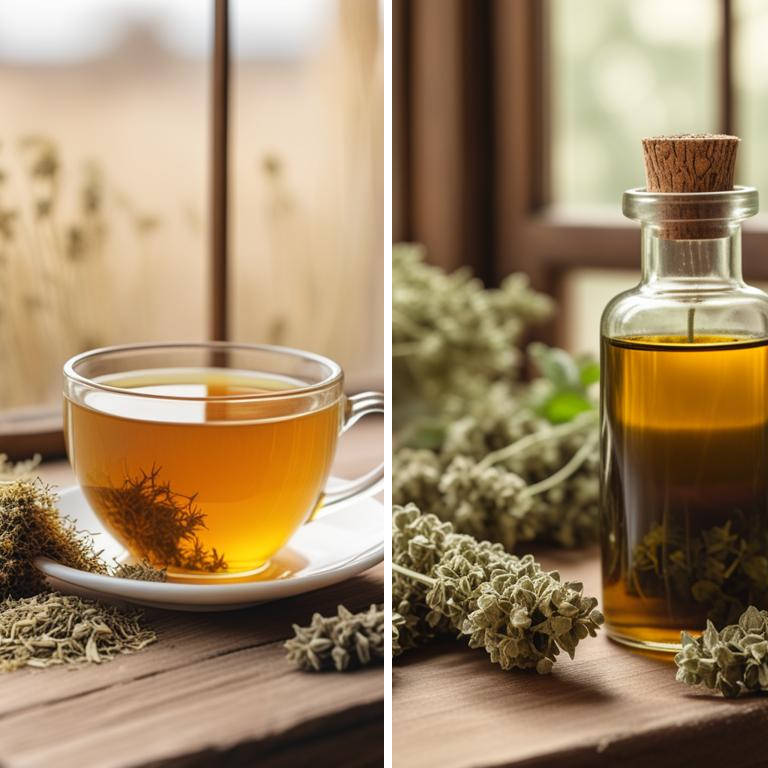
When you burp, it's often a sign of digestive issues or eating too quickly.
Herbal preparations can help soothe your stomach and reduce burping. A decoction is a strong tea made by simmering herbs in water, which can help ease digestion and calm your stomach. For example, ginger decoction can help reduce inflammation and nausea, making it a great option for burping. Herbal tea is another popular choice for soothing the stomach. It's made by steeping herbs in hot water, and you can choose from various herbs like peppermint, chamomile, or lemon balm, which are known for their calming effects on the digestive system.
An infusion is similar to a tea, but it's made by steeping herbs in cold water, which can be a good option for people who can't tolerate hot drinks. You can use herbs like fennel or anise to help ease digestion and reduce burping. A tincture is a concentrated liquid extract of herbs, which can be taken in small doses to help calm your stomach and reduce burping. You can take it sublingually (under the tongue) or mix it with water to drink. For topical relief, you can use a salve, which is a cream or ointment made from herbs.
For example, a ginger salve can be applied to your stomach to help ease digestion and reduce inflammation, which can help alleviate burping.
Additional Resources:
What herbs should be avoided when you have the problem of burping?
If you experience frequent burping, it's a good idea to limit or avoid certain herbs.
Mentha x piperita, also known as peppermint, can be a problem because it can relax the lower esophageal sphincter, allowing stomach acid to flow back up into the esophagus, which can cause burping. Glycyrrhiza glabra, licorice root, can also be a culprit because it can slow down digestion and lead to gas buildup in the stomach, which may result in burping.
Silybum marianum, milk thistle, might not be the best choice either, as it can stimulate the digestive system and cause stomach upset, including burping. Satureja hortensis, also known as summer savory, contains compounds that can irritate the stomach and lead to gas and bloating, which may cause burping.
Finally, Anethum graveolens, dill, can cause stomach upset and gas due to its carminative properties, which help to release gas in the digestive system, but can sometimes lead to more gas and burping rather than less.
FAQ
Are there any specific herbs that can prevent burping?
Ginger is known to help with digestion, which can reduce burping.
It's often used in teas and cooking to aid stomach upset. Fennel seeds also have properties that can calm the digestive system, making them a popular choice for relieving gas and discomfort.
These herbs may help alleviate occasional burping.
Is it safe to use herbal remedies for burping during pregnancy?
When burping during pregnancy, some women turn to herbal remedies.
However, it's crucial to note that the safety of these remedies hasn't been extensively studied.
Some herbs like ginger and peppermint are generally considered safe, but it's essential to consume them in moderation and choose products from reputable manufacturers to minimize potential risks.
Are there any herbs that can reduce the frequency of burping?
Ginger has been known to help with digestion, which may reduce burping.
It's often used in teas or added to food for its flavor and potential benefits.
Fennel seeds and peppermint are also sometimes used to ease digestive issues, but the effectiveness can vary from person to person.
Can i combine different herbal remedies for burping?
You can combine different herbal remedies for burping, but be cautious.
Some herbs may interact with each other or with your body.
For example, peppermint and ginger are often used together for digestive issues, but be sure to start with small amounts and monitor your body's response.
Related Articles
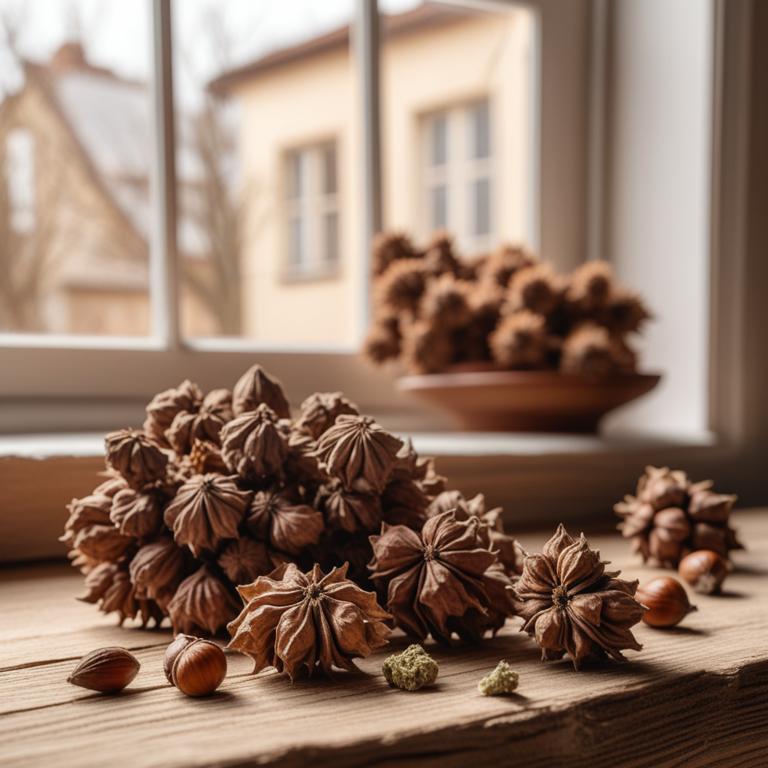
Constipation Prevention and Treatment with Herbal Preparations
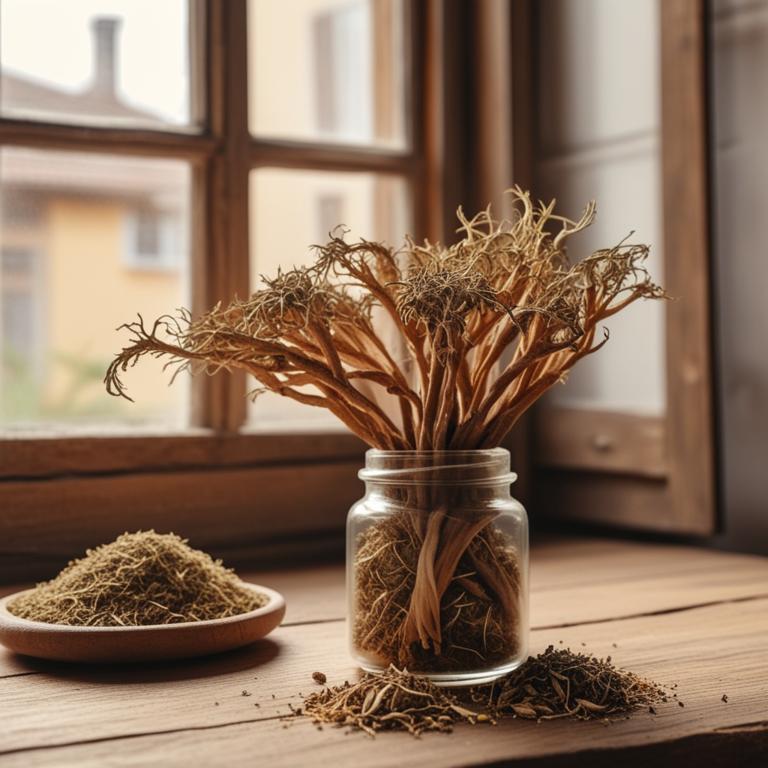
Ulcerative Colitis: Investigating the Role of Medicinal Herbs and Preparations
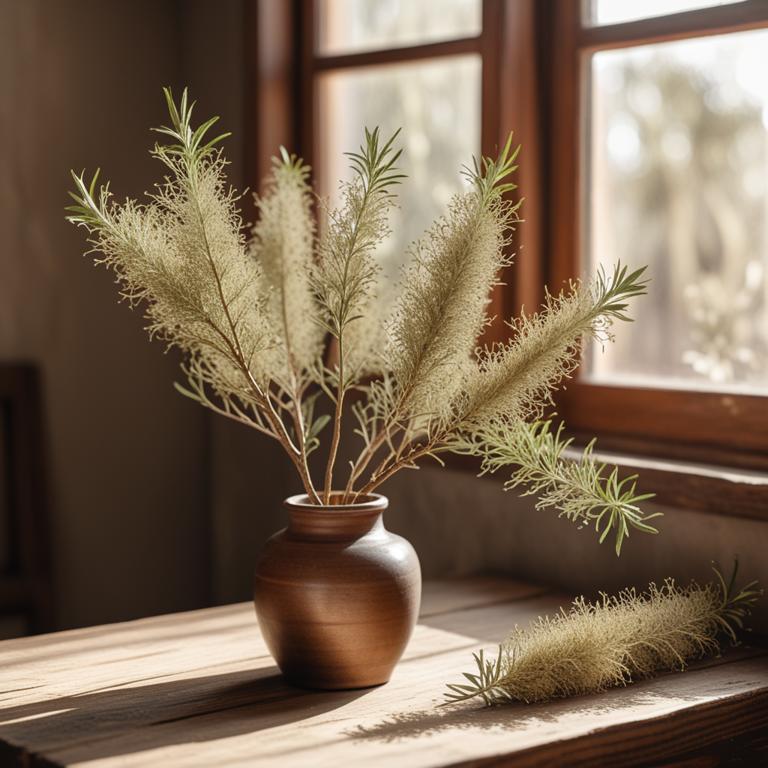
Cavities Causes and Natural Treatment Options with Medicinal Herbs and Herbal Preparations
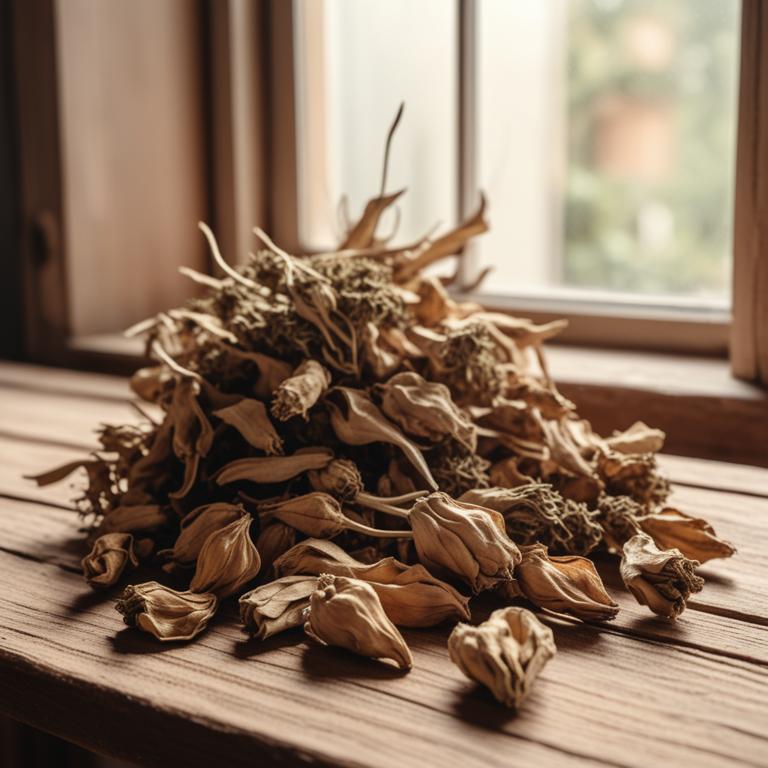
Irritable Bowel Syndrome: Understanding the Causes and Using Medicinal Herbs for Relief
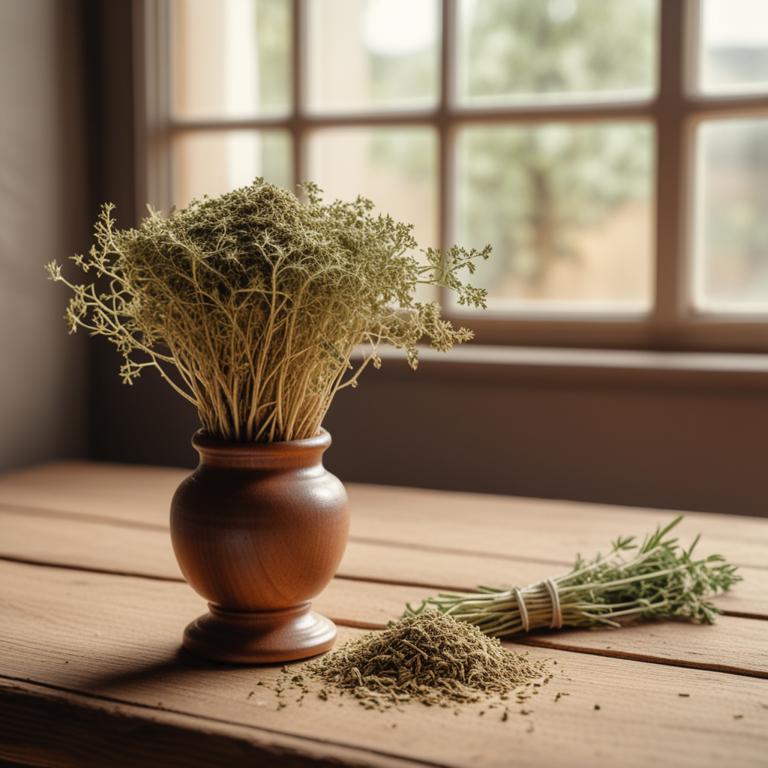
Burping Causes and Herbal Preparations for Relief
